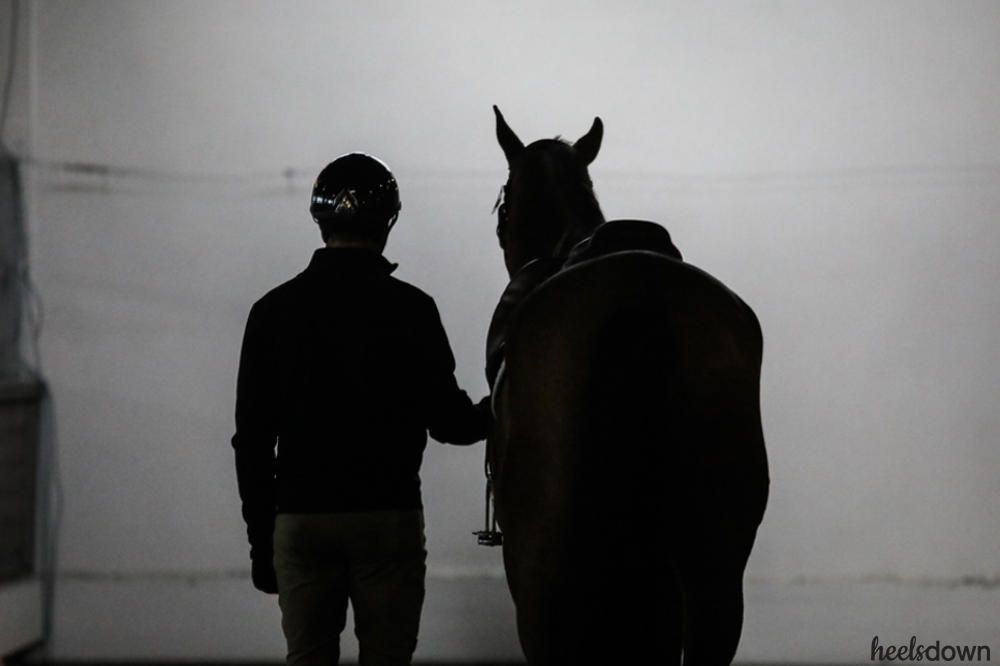What Does Horsemanship Actually Mean?

What separates good riders from great riders? Some may say bravery, confidence, a fancy horse, a top notch trainer, show miles, tricolor ribbons, sponsors, or money. Each of those may have some truth to them. Dedication and time are not as debatable. To me, good riders become great when committing to becoming well-rounded horsemen. Horsemanship, with all its definitions and history, matters.
The associations we have with certain words change. For instance, yoga was seen only as part of New Age or Eastern spirituality. Now, it is an incredibly mainstream way of exercising, and it has become one of my favorite ways to care for my equestrian body out of the saddle. It has helped with a sore back that still hurts ages after a bad fall, and I am more balanced in the saddle. Yoga can still incorporate spirituality or be fully about exercise.
Years ago, the word “horsemanship” often led people to imagine a cowboy out in the wilderness taming a wild horse within hours. Or we would imagine a woman doing tricks in a round pen. It rarely seemed as though horsemanship had a positive association in hunter/jumpers, but that is changing for the better.
Horsemanship can still lead us to a calm cowboy (and don’t underestimate what that calm cowboy can teach you), and it can also mean intentionality in your softness and connection with your horse. The meanings of words can change and be more accessible to everyone.
I remember other riders complimenting the “connection” I had with my first horse during my teen years. They commented that we spoke a language other riders were not with their horses, and the connection I have with my five year old horse now is infinitely greater. There was a conversation with a fellow 18 year old that is seared into my mind. It was two decades ago, and yet I will never forget chatting about the importance of having a relationship with your horse. That was late 90’s/early 00’s talk for “horsemanship.”
She scoffed at me. “Horses are a business. There is no point in a relationship.” Horses can, indeed, be a business obviously, but I cannot imagine taking emotion and relationship out of it. We have evolved from hiding the word “horsemanship” behind “relationship,” and we have truly begun to notice the importance of that
aspect of riding. We have evolved from putting horsemanship in a box with people out on a dreamy piece of practically untouched land. Horsemanship is essential for each of us, and putting the time, active listening, dedication, and wisdom of horsemanship into our daily practice makes us great riders.
Basic horsemanship is something we all do. It’s riding with minimal and soft aids, not putting our horses away before they’re cool, blanketing when appropriate, wound care, maintaining manes, treating thrush, and caring for your horse’s coat and skin with good grooming and baths. What we find beyond the basics is beautiful and long lasting.
I’m finding that true horsemanship is seen and felt with us all day, well before we arrive at the barn and long after we’ve left. I’m trying to be more intentional about being soft with every action, which can be rather difficult when darting into a trauma room at work. I will still rip off my mask and other medical equipment to make kids giggle at the idea of me being as strong as the Hulk, but there is a way for every movement to be soft and without tension. If being soft, calm, listening, and intentional about how we do every day activities and simple things can effect us, then how could it not effect the energy we bring to our horses? This is a start to going beyond the basics and turning us from good riders into great ones.
I want to be the kind of rider that horses, particularly mine, are both thrilled and at ease when I lead them to the cross ties and they realize we are about to work together. Imagine how it feels when someone truly listens to you. When you feel heard, you feel comforted and seen.
You feel you matter. Active listening is a major part of my role as a pediatric chaplain. I can do it in the midst of the most chaotic moments at work, but it’s hard to hear through chaos in the arena with people cantering and trotting in various directions and paying limited attention to who, or what, is in their path. Perhaps that’s because nothing scares me at work, but there are things in our sport that are scary. That’s for another article though.
Through softness, I can hear my horse loudly, and he can trust me. He knows he is safe. As I grow as a rider, I can continue to emphasize a relationship with my horse and finding what true horsemanship is. We can be riders and horsemen at the same time, and creating space for the latter makes us stronger, more confident, more well-rounded, and deeper riders.


